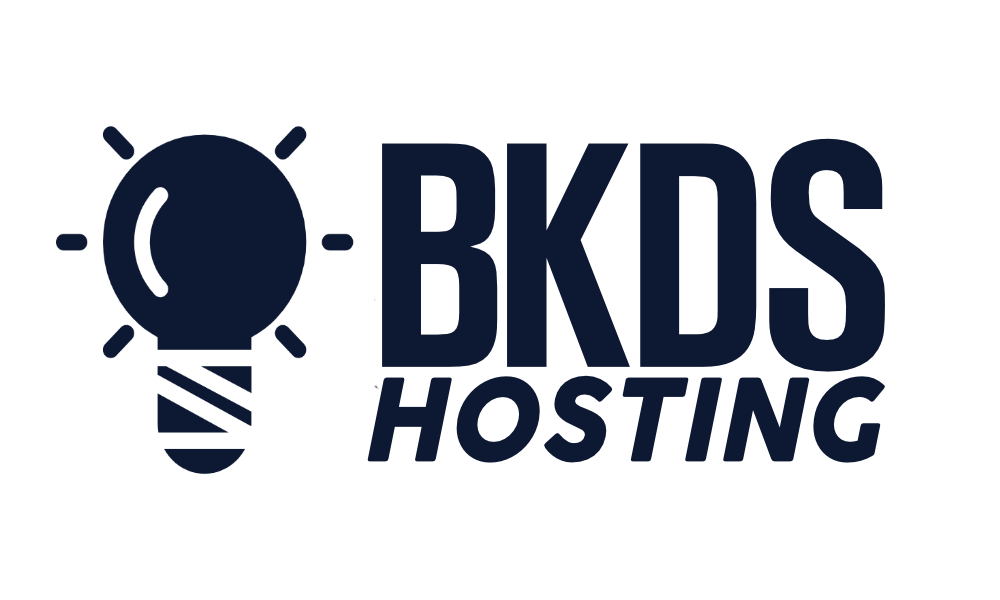In today's digitized business landscape, ensuring consistent website availability, or uptime, is no longer a luxury but a necessity for success. Whether it's an e-commerce platform that relies on online transactions or a content-driven site that profits from page views, the implications of downtime can be financially damaging and detrimental to an organization's reputation. The importance of uptime spans across several domains, from safeguarding revenue and enhancing user experience to protecting brand image and boosting search engine rankings. In this discourse, we will dissect the six paramount reasons why uptime is essential for businesses, and in doing so, reveal why this often overlooked aspect might just be the linchpin in your business's digital strategy.
Reducing Revenue Losses

In the realm of business operations, minimizing revenue loss is substantially contingent upon maintaining optimal website uptime, a critical factor that can significantly influence a company's bottom line. As such, uptime is essential for businesses. Reliable uptime monitoring can detect and resolve outages swiftly, thereby reducing revenue losses.
To quantify this, consider that uptime percentages translate directly to hours or even days of potential downtime, which can result in substantial lost revenue. Industry behemoths such as Google, Amazon, and Facebook strive for a near-perfect uptime of 99.999% to avert such losses.
Moreover, providing transparency through public status pages during outages, which are inevitable even with the most robust systems, can help assuage user concerns and mitigate revenue loss. This transparency fosters trust in the brand, maintaining customer loyalty during these challenging periods.
Early detection of outages is another critical factor. It allows swift problem resolution, which not only reduces downtime but also protects page rankings, preventing further revenue loss. In essence, maintaining optimal uptime is not merely a technical necessity but a strategic move that directly impacts revenue preservation.
Enhancing Visitor Experience
Enhancing visitor experience is a multifaceted process that hinges on increasing site accessibility, streamlining user navigation, and optimizing load speed. Increased site accessibility, facilitated by constant uptime, allows for a seamless user interaction, thereby promoting user satisfaction. Furthermore, by optimizing load speed and streamlining navigation, businesses can provide their visitors with an efficient and enjoyable browsing experience, establishing a positive impression and fostering customer loyalty.
Increasing Site Accessibility
To optimize the visitor experience, it is imperative to increase site accessibility by ensuring continuous availability, quick problem resolution, and reliable operation of the website. High uptime is a critical factor for website owners, as every moment of website outage can result in significant revenue loss and damage to brand credibility. Therefore, maintaining high uptime is not just about keeping the site online; it's about enhancing visitor satisfaction and trust. By increasing site accessibility, businesses can ensure their digital infrastructure meets the needs of the modern consumer, who values speed, reliability, and seamless browsing experience. Hence, a strategic focus on uptime is not just a technical necessity but a strategic business decision that can significantly improve the overall visitor experience.
Streamlining User Navigation
Navigating through the intricacies of user experience, streamlining navigation emerges as a crucial aspect in enhancing visitor satisfaction and engagement on a website. A well-organized website performance, with an optimized navigation structure, allows for an intuitive user journey. This not only improves the overall user experience but also reduces the impact of downtime. Through website uptime monitoring, businesses can ensure seamless navigation, minimizing the chances of user frustration and confusion. This, in turn, contributes positively to the brand's perception. Furthermore, streamlining user navigation can lead to increased conversion rates and higher retention, as users are more likely to explore the website. In an era craving innovation, developing a user-friendly website navigation system can provide a competitive edge, demonstrating the importance of uninterrupted uptime.
Optimizing Load Speed
Building on the concept of uninterrupted uptime and streamlined navigation, a critical element in ensuring a positive visitor experience is the optimization of load speed. When a website loads swiftly, it positively impacts user engagement, reduces bounce rates, and enhances the overall perception of the brand.
In the continuous pursuit of innovation, the following aspects should be considered when optimizing load speed:
- Website Performance: Streamlining elements that slow down loading times can significantly improve user experience.
- Server Performance: Employing effective server management practices can ensure faster response times.
- Response Time: Minimizing server response time is crucial in enhancing website speed.
In essence, optimizing load speed is a fundamental aspect of augmenting visitor experience and should be a primary focus for businesses striving for digital excellence.
Safeguarding Business Reputation
In the realm of business, safeguarding reputation—a critical element for customer trust and loyalty—often hinges on maintaining consistent website uptime, a factor that positively influences brand image and negates the potential for damaging repercussions. With the digital age upon us, the reliability of a business's online presence has become synonymous with the brand's identity and reputation.
Downtime not only affects sales and productivity but can severely impact a business's reputation, leading to loss of customers and potential revenue. Therefore, businesses must put in place robust measures to ensure the uptime of their websites.
| Actions for Safeguarding Business Reputation | Importance |
|---|---|
| Monitoring Website Uptime | Ensures prompt issue resolution and reliable customer experience |
| Transparent Communication during Downtimes | Mitigates brand reputation damage |
| Consistent Website Uptime | Enhances positive brand image |
| Proactive Downtime Management | Prevents negative impact on customer trust |
| Long-term Uptime Consistency | Essential for customer retention and success |
Quick Detection of Cyber Threats

In the context of business continuity, the rapid identification of cyber threats is a critical factor that can significantly influence the uptime of digital infrastructure. It underscores the importance of cybersecurity in maintaining the integrity of business operations and safeguarding sensitive information. This discussion will further explore the role of threat detection and the significance of cybersecurity in ensuring minimal disruption to business activities.
Identifying Potential Threats
Prioritizing rapid detection of cyber threats is crucial for the protection of sensitive data and the prevention of potential breaches, offering businesses the ability to act instantly to mitigate risks and safeguard their operations. Identifying potential threats promptly is vital in minimizing website downtime and ensuring business continuity.
Innovative monitoring tools are essential in:
- Detecting and identifying potential threats, enabling immediate action to reduce the risk of a security breach.
- Providing a proactive approach to maintaining a secure digital environment, reducing the possibility of website downtime.
- Facilitating the implementation of timely countermeasures in case of downtime, ensuring the resilience of business operations.
Thus, a detailed, analytical approach to identify potential threats is a critical aspect of ensuring uptime for businesses.
Importance of Cybersecurity
Building on the importance of identifying potential threats, the role of cybersecurity becomes even more significant, particularly the ability for quick detection of cyber threats, which serves as a critical safeguard against potential data breaches and security incidents. This is where the importance of cybersecurity is felt most by businesses. A website is often the first point of contact and hence, the first line of defense. Therefore, having robust monitoring systems in place is crucial. These systems enable swift identification of threats, allowing for immediate response and mitigation efforts. This not only safeguards sensitive data, but also minimizes potential disruptions to operations. Thus, underscoring the importance of cybersecurity in maintaining uptime and demonstrating a business's commitment to protecting customer data.
Boosting Search Engine Rankings
High uptime percentages, achieved through regular website monitoring and robust infrastructure, are vital for enhancing a business's search engine rankings. Search engines, such as Google, consider website availability as an essential factor in their ranking algorithms.
Website monitoring services provide the necessary data to measure the downtime per month, allowing businesses to adjust their strategies accordingly. These services offer valuable insights into performance, anomalies, and potential issues that can affect uptime.
Regular uptime leads to an improved user experience, which is another factor search engines consider. If your website is frequently inaccessible, it can lead to decreased user engagement, affecting your search ranking.
Investing in boosting search engine rankings through uptime can offer numerous benefits such as:
- Enhanced visibility and organic traffic
- Improved brand reputation and credibility
- Increased revenue and customer satisfaction
In today's competitive digital landscape, maintaining high uptime is not just about keeping your website accessible; it's about staying ahead of the competition. So, it's crucial for businesses to invest in robust infrastructure and regular website monitoring to achieve high uptime percentages and improve their search engine rankings.
Evaluating Hosting Provider Performance

While maintaining high uptime percentages is crucial for improving search engine rankings, the performance of the hosting provider plays a significant role in ensuring reliable website availability. A rigorous process of evaluating a hosting provider's performance should include understanding their methods and frequency of website monitoring. It is essential to find out how they track site availability and if they use real-time monitoring tools.
The hosting provider's approach to communication is also vital. A provider who alerts customers immediately during website downtime shows commitment to their client's online presence. This level of transparency can significantly reduce potential revenue loss caused by unavailability.
Further, assessing the hosting provider's track record in quick problem resolution is another crucial factor. They should have a proven history of resolving issues promptly to minimize the impact on the website's online presence.
Lastly, evaluating the hosting provider's uptime percentages is a key determinant in selecting a provider. Understanding the financial impact of downtime and the provider's role in preventing it helps in making an informed decision. Therefore, a thorough evaluation of the hosting provider's performance is fundamental in ensuring uptime and ultimately the success of your business.
Conclusion
In conclusion, the importance of uptime for businesses cannot be overstated. It is a crucial factor in mitigating revenue losses, improving visitor experiences, and bolstering business reputation. Additionally, it aids in prompt identification of cyber threats, enhances search engine rankings, and provides a means to assess the performance of hosting providers. Therefore, investing in uptime monitoring solutions is a strategic move for any business seeking to optimize their digital performance and credibility.

